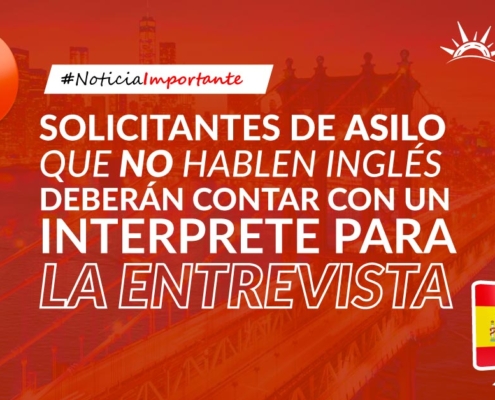Tag Archive for: Immigration Law

What evidence do you need to best support your asylum claim?
Asylum Petition
Applying for asylum in the United States is a process that requires strong evidence to show that your life would be in danger if you were to return to your home country.
This blog provides you with a detailed guide on the evidence needed…

VAWA Visa in the United States: How to Apply and What Benefits Does It Offer?
Uncategorized
The VAWA (Violence Against Women Act) Visa is a crucial resource for victims of domestic violence seeking safety and stability in the United States. In this article, we'll walk you through the VAWA Visa application process and explain the…

Major Changes to Affirmative Asylum Interviews Starting September 13
Uncategorized
As of September 13, 2023, we at Immigration PRO want to inform you about an important change in affirmative asylum interview procedures. USCIS (U.S. Citizenship and Immigration Services) has established a new requirement for affirmative…

Major Changes to Affirmative Asylum Interviews Starting September 13
Uncategorized
As of September 13, 2023, we at Immigration PRO want to inform you about an important change in affirmative asylum interview procedures. USCIS (United States Citizenship and Immigration Services) has established a new requirement for affirmative…





